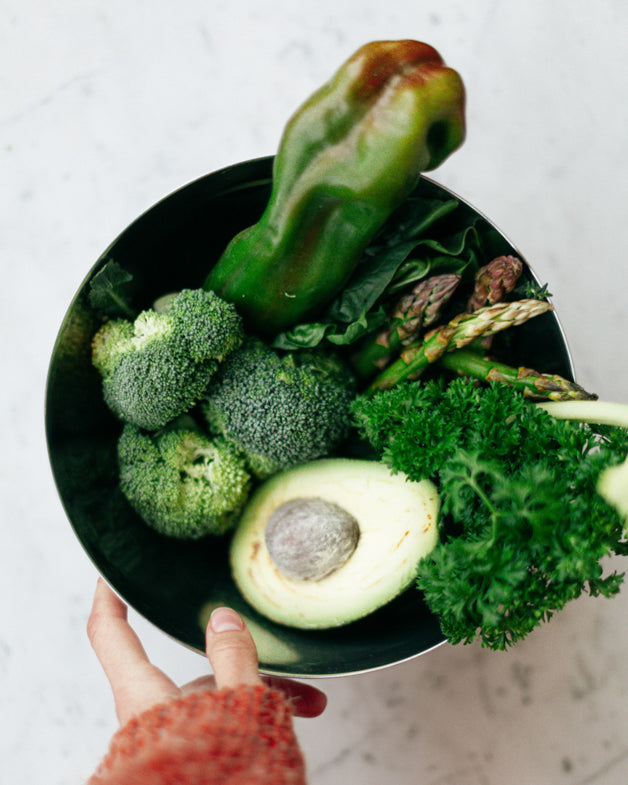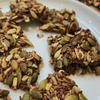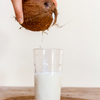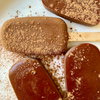Treatment for Candida, Fungal and Yeast Overgrowth

Candida, yeast and fungal infections are more common than you think, and be responsible for so many random niggling symptoms as well as symptoms you can't ignore.
When wanting to overcome an overgrowth or infection, these guys are masters of survival, so there is a lot to consider in the treatment process (trust me, even as a gut health specialist these guys keep me on my toes). To help you understand if you have an issue and what to do about it, here are the must knows.
What are the symptoms of a candida or yeast infection?
-
Gut: bloating (particularly if stubborn to treat and bacterial treatments aren't helpful), excess and smelly gas, general digestive upsets such as heartburn, constipation and a white coating on your tongue.
-
Diet: food reactions and sugar cravings
-
Skin: rashes, flakey skin, dandruff like issues, finger and toe nail infections
-
Immune system can be compromised leading to opportunistic infections and finding it hard to fight off infections such as chronic sinusitis
-
Mental health and brain function: Poor concentration and brain fog are big, headaches, depression and low mood
-
Genitals: thrush, vaginal discharge that is unusual is smell, colour or appearance, itchiness or irritation
What is the main cause of a yeast, fungal or candida infection?
Candida albicans is an important human opportunistic fungal pathogen which is frequently found as part of the normal human microbiota. It is harmless and coexists in harmony with other bacteria and organisms.
Candida is found on many surfaces of the human body including oral cavity, the gut, the urogenital tract and skin.
Candida infections are opportunistic which means when arise when the normal and healthy microbiome is distorted. The following factors can cause microbiome disruption and set you up for an infection:
-
Alcohol
-
Antibiotics (especially overuse or chronic use)
-
Steroid medications (ventolin, cortisone)
-
Oral contraceptive pill
-
Diet high in sugar and carbohydrates
-
Stress leading to a lowered secretary IgA (immune marker in your gut)
-
Illness
-
Pesticides and glyphosate
-
Smoking
-
Heavy metals especially mercury (1)
Are all yeast infections candida?
Candida albicans is a yeast, which is a type of fungus, and is the most common yeast species observed in the human gut microbiome. However it is not the only type of yeast we have. We can have Candida parapsilosis and Candida glabrata as well other organisms from the Geotrichum species, Microsporidium species and Rhodotorula species. With the advancement of technology we are identifying and learning more about organisms and their role in our health.
How do you test for infections?
Yeasts are clever at avoiding detection for a variety of reasons such as they can be in locations where testing methods are unable to reach, or they have 'hiding' mechanisms that make it difficult. Depending on your circumstance you may consider the following testing methods:
-
Swabs and cultures for skin and vaginal based infections
-
Stool testing for systemic issues and digestive systems. Not all stool tests are the same and need to consider if culture based methods, metagenomics or molecular techniques.
-
Blood samples, however can often be negative.
-
Urine testing to assess for yeast and fungal markers and metabolites (this is the best for gut issues, and what I use in my Melbourne clinic).
They all have pros and cons which need to be weighed up for each person.
How do you treat Candida?
By now you can see that it's a multi pronged issue and that a silver bullet approach isn't enough. Firstly the causes of your yeast infection needs to be addressed, which is different for everyone. Thereafter supporting your immune system whilst treating infection needs to be part of the process.
Natural antifungals to address yeasts can include herbs like oregano, thyme, clove and garlic as well as acids like caprylic acid (found in coconut oil). Using these in your food is a great way to use food as medicine and start the process. However supplements of these (plus other herbal antifungals) will need to be used. When it comes to supplementation it's best to do under the care of a practitioner as these herbs can be strong and impact your microbiome.
Certain probiotics such as certain Lactobacillus species (dependent on location of infection) and Saccharomyces boulardii can assist in treatment.
What about the Candida Diet?
Avoidance simple sugars, refined carbohydrates and hydrolysed yeasts can support your efforts, however diet alone is not the treatment. There is no length of time following the Candida Diet that will end in complete treatment of the infection if done alone and without holistic intervention.
How long does it take to get rid of Candida?
The time frame for each person is different, as it relies on a range of other factors such as immune strength, microbiome profile and dietary and lifestyle choices.
Generally speaking infections can take 6 months plus to properly treat so that opportunistic infection doesn't occur.
It can be difficult to a few factors. Yeasts have the following sneaky skills:
-
They form elaborate biofilm around themselves which allows them to a) avoid detection by our immune system and b) escape the effects of treatment interventions
-
They invade our mucosal surface furthering their ability to avoid detection and treatment
-
They have a robust cell wall that contain something called mannose glycoprotein. This suppresses our immune system and gives them the chance to adapt to our local conditions. Their ability to adapt to the environment is what one of the reasons they can be persistent and chronic in their infection.
-
They can adapt and become resistant to antifungal medications if treatments are prolonged.
There are many more skills including their ability to tolerate high host temperature and have metabolic adaptations that help them survive and thrive (2).
I cover EVERYTHING about candida, fungal and yeast infection in Bloated to Body Confident , where I share the step-by-step strategy for finding your root cause, comprehensive functional and diagnostic testing, personalised dietary advice, holistic support, effective treatments and sustainable solutions, empowering evidence-based information and a clear action plan.
-
Posted in
Gut Health, Yeast & Fungus







